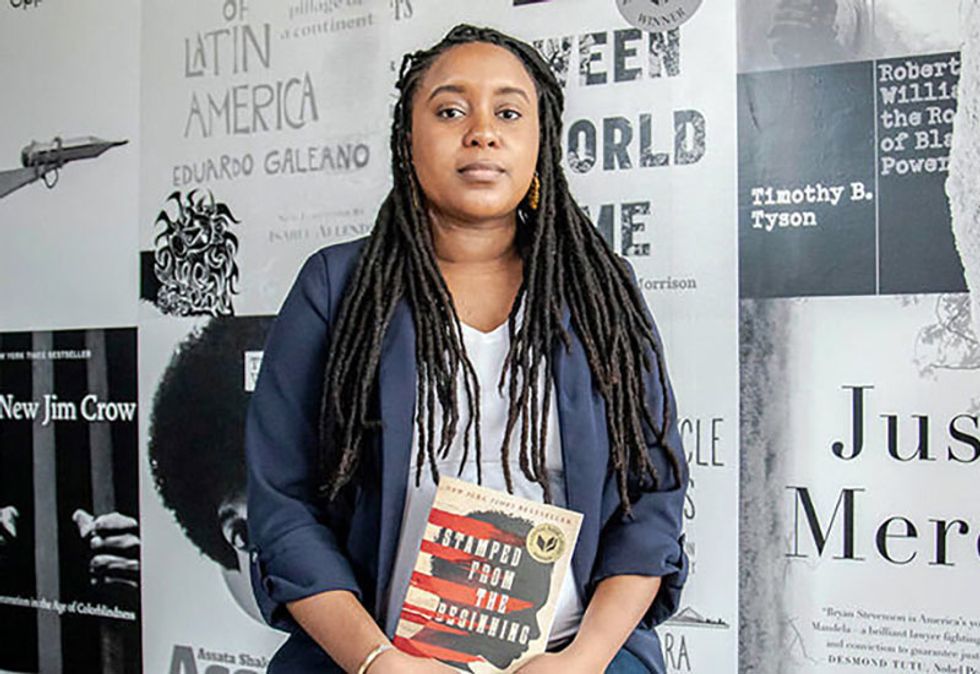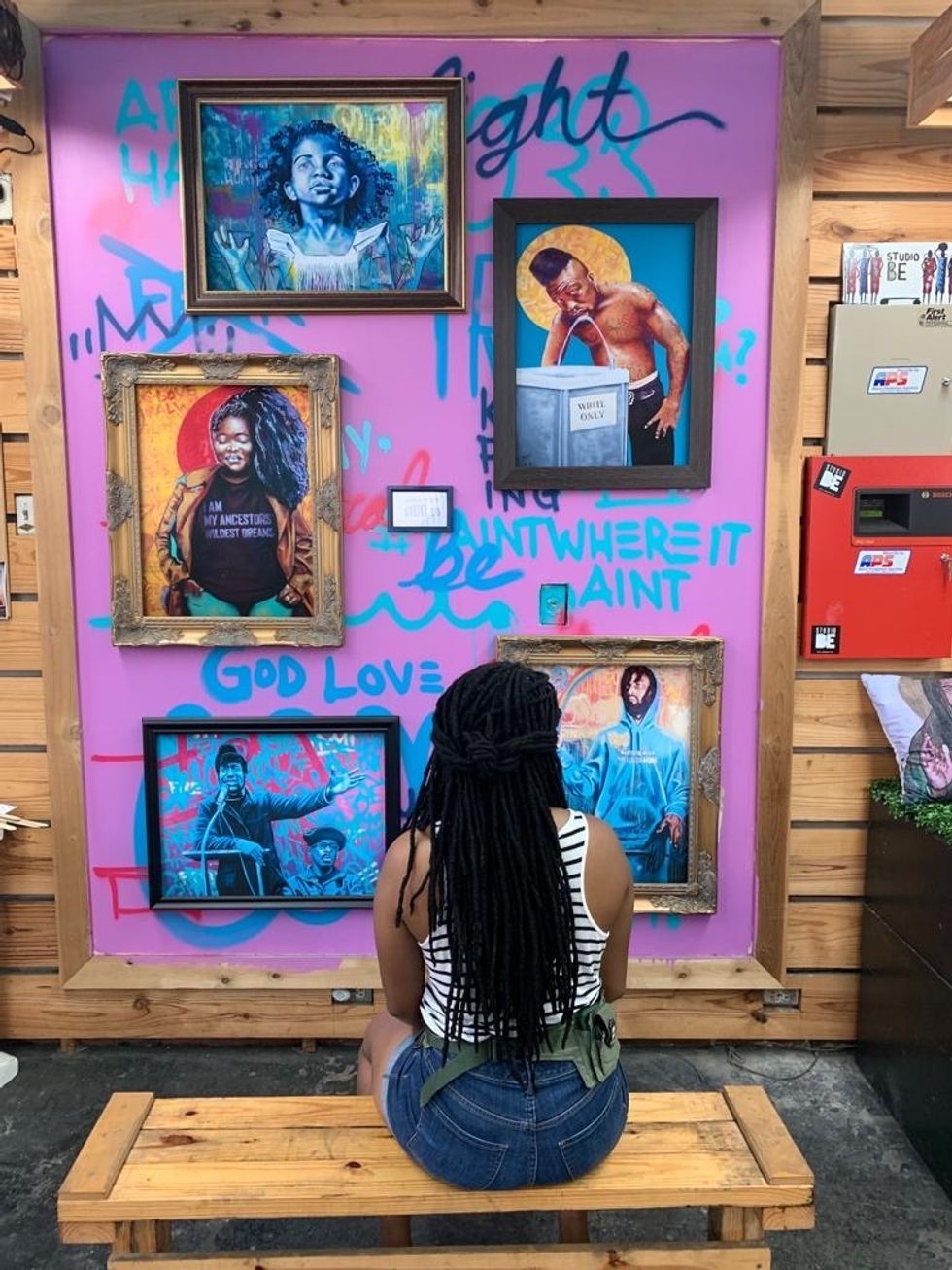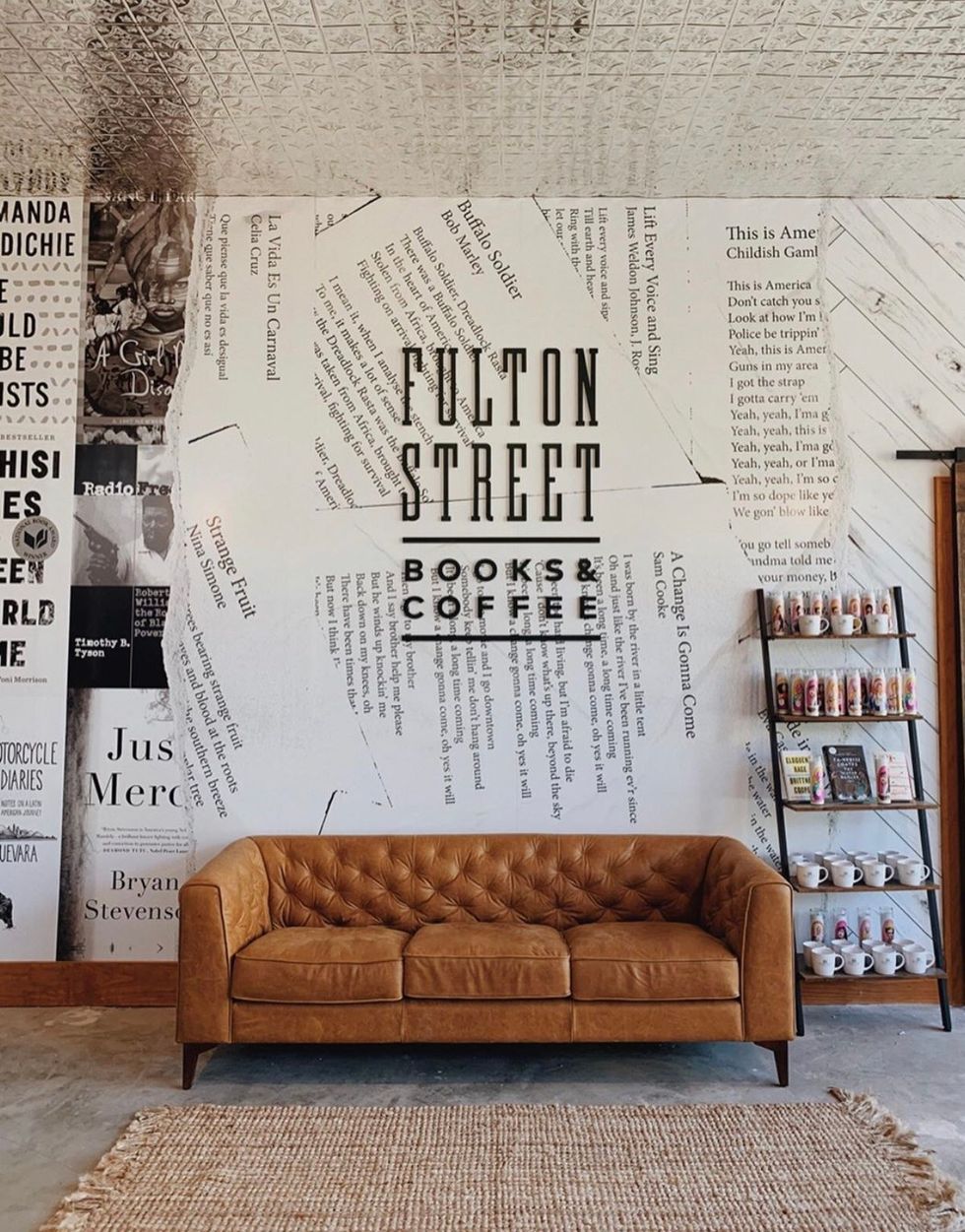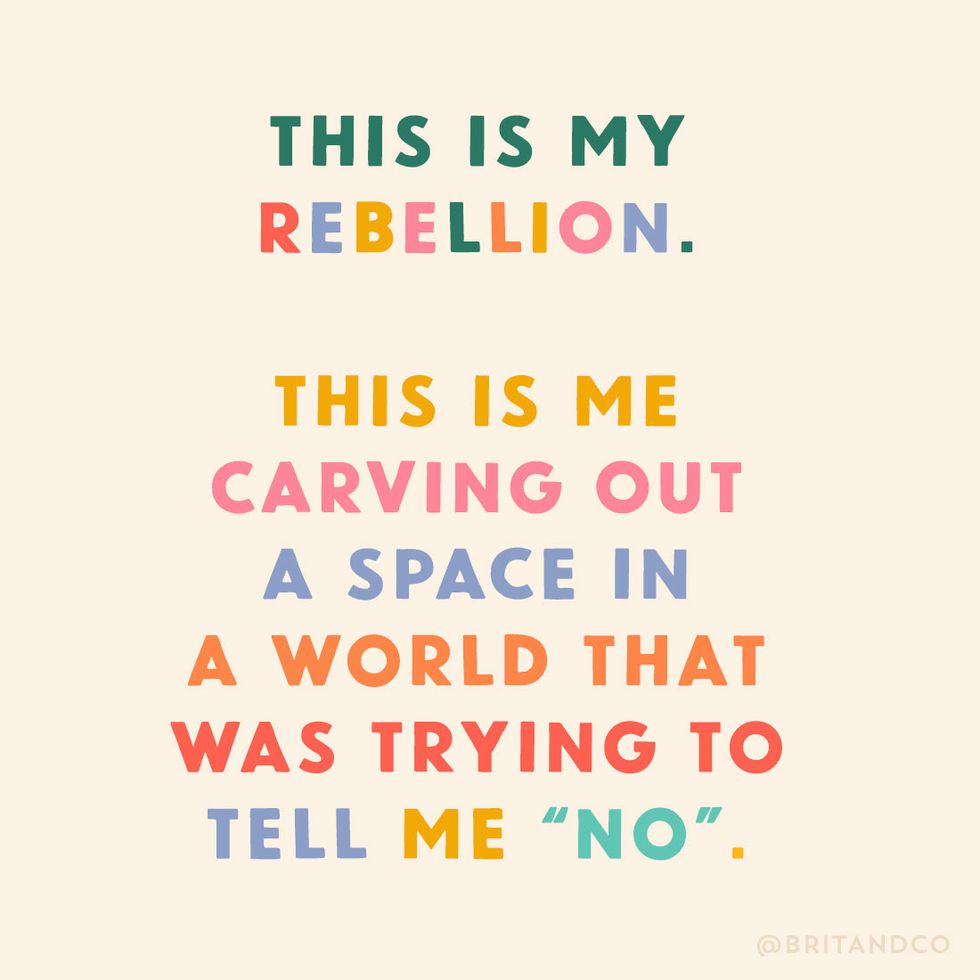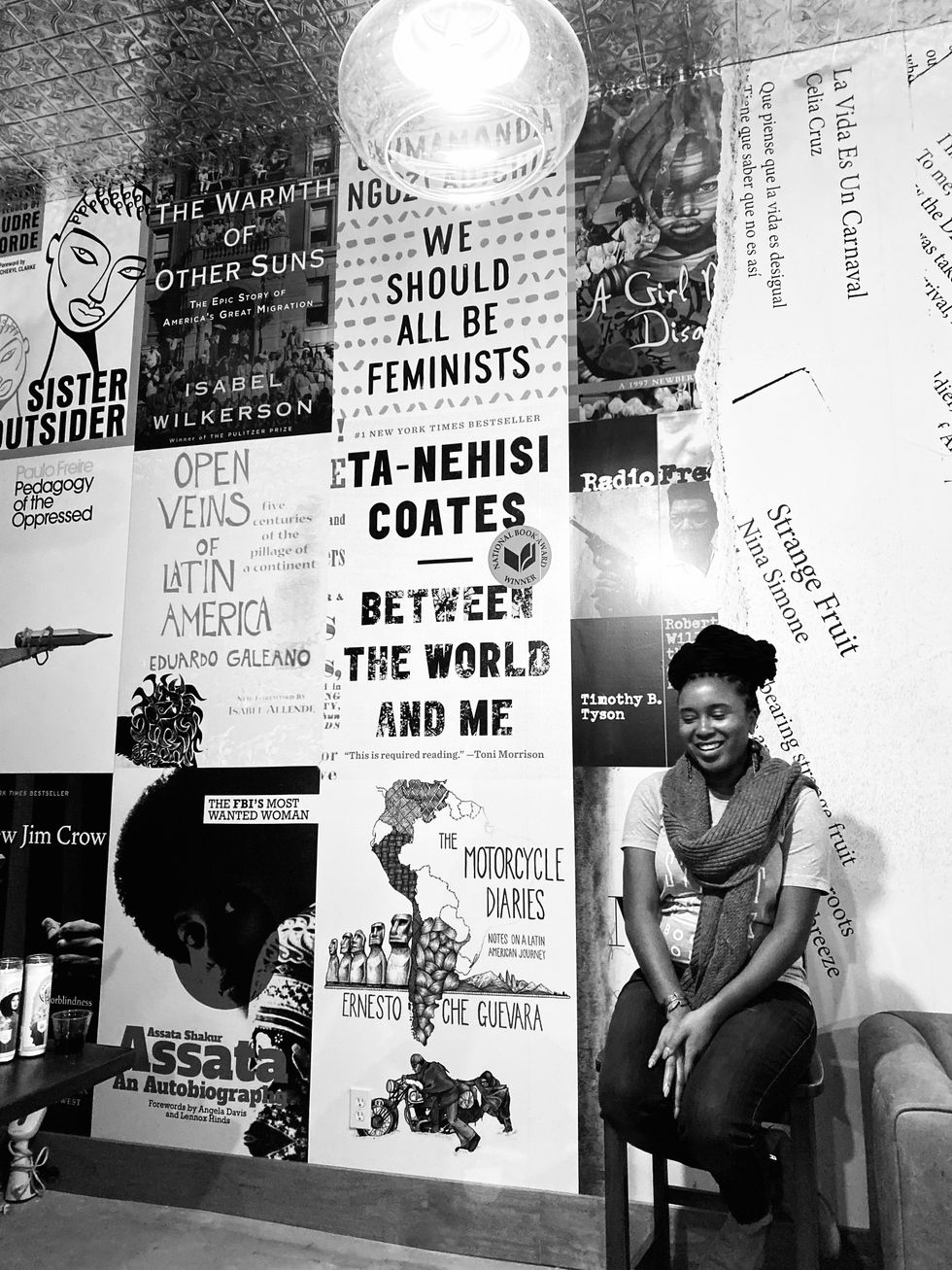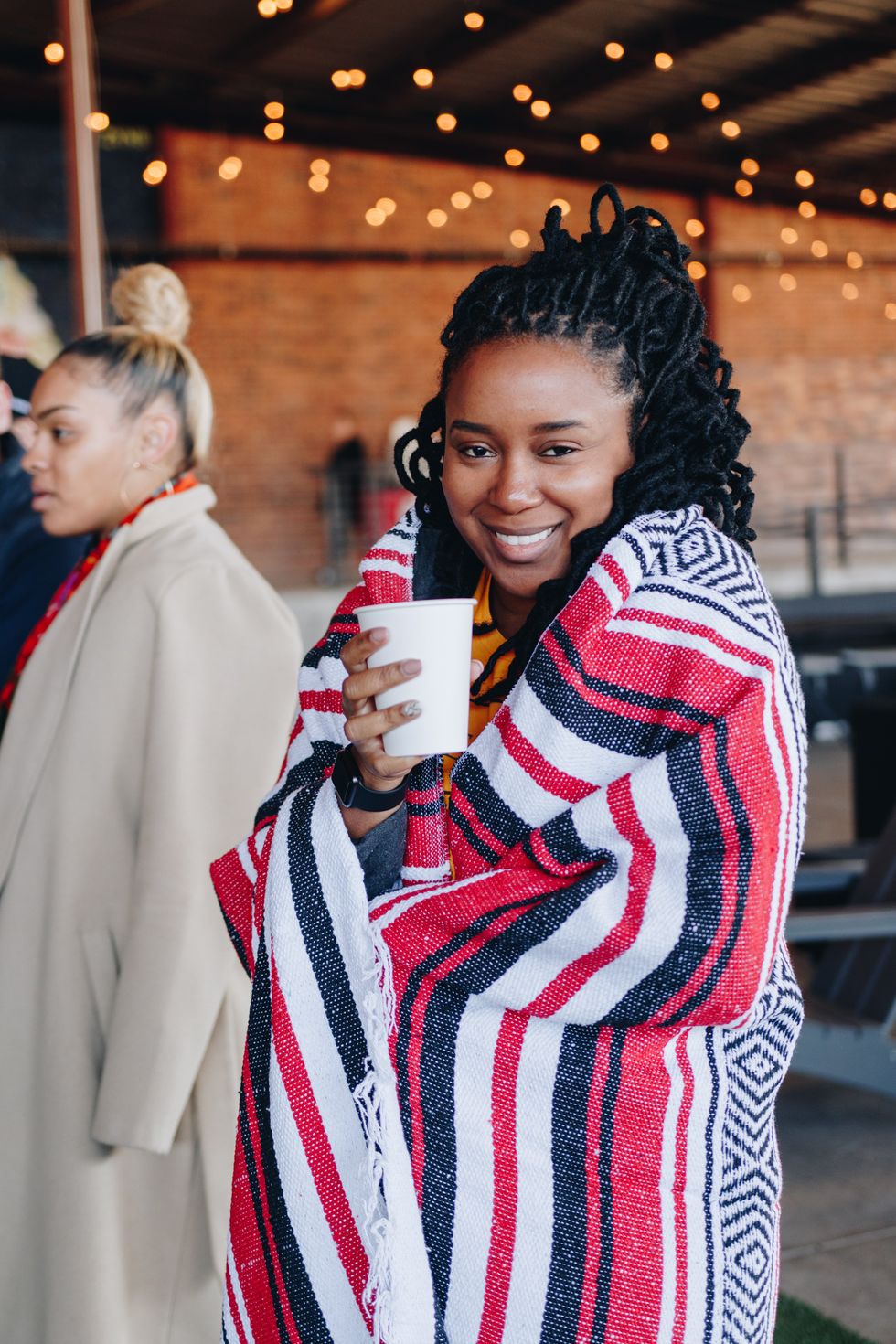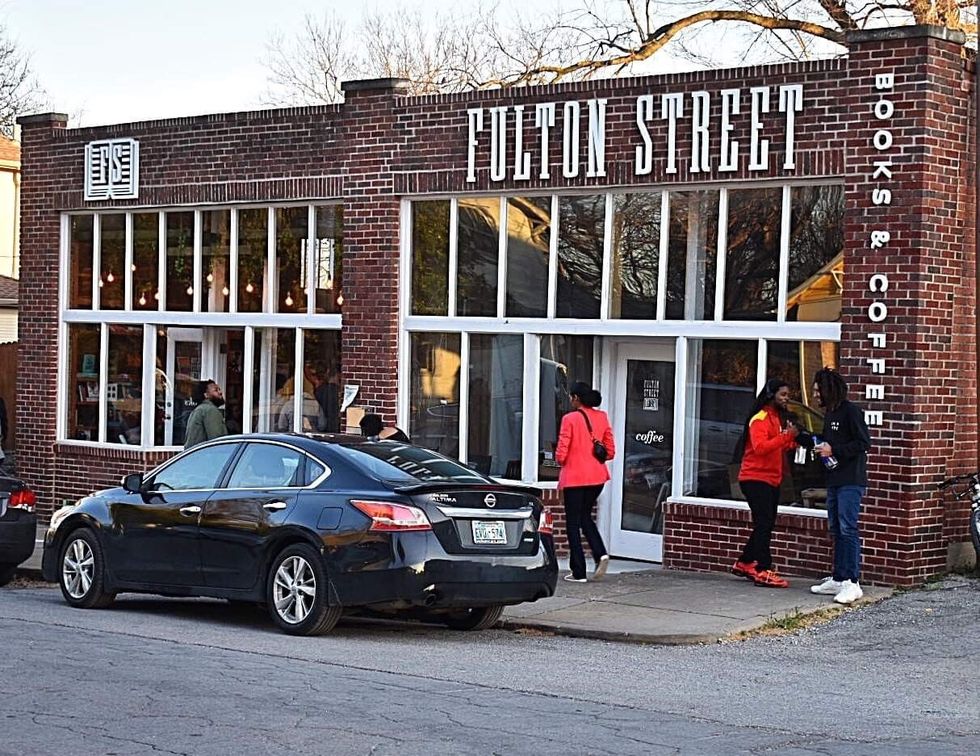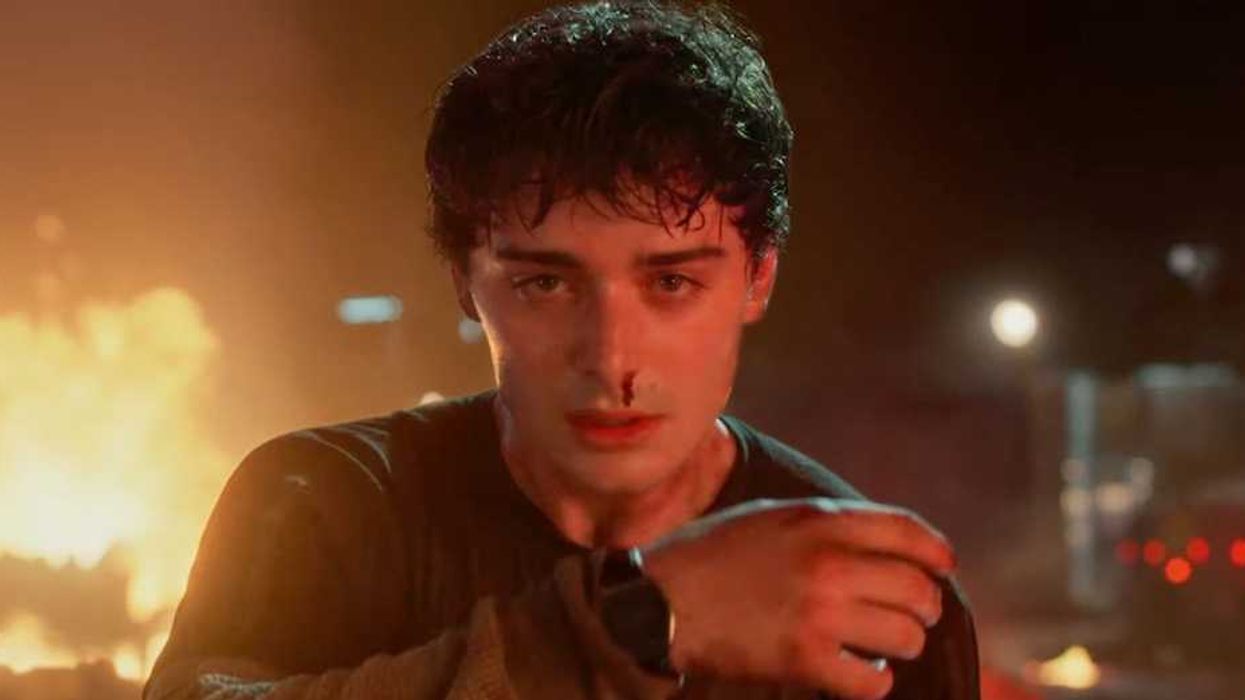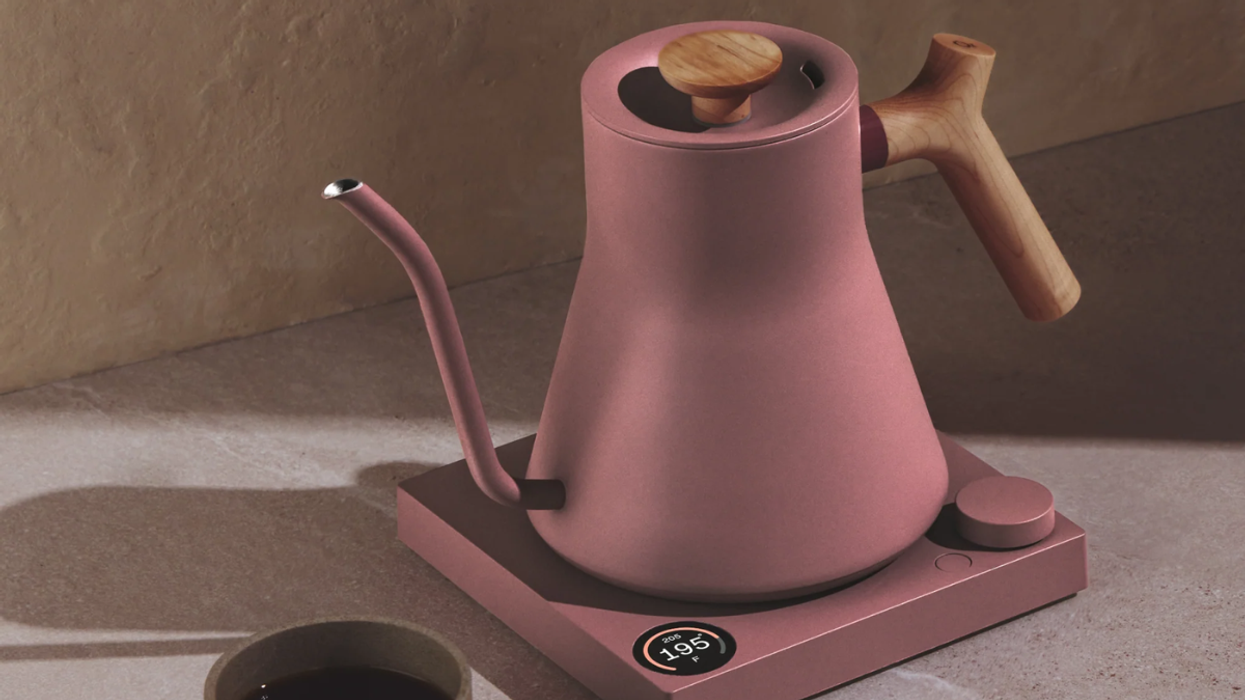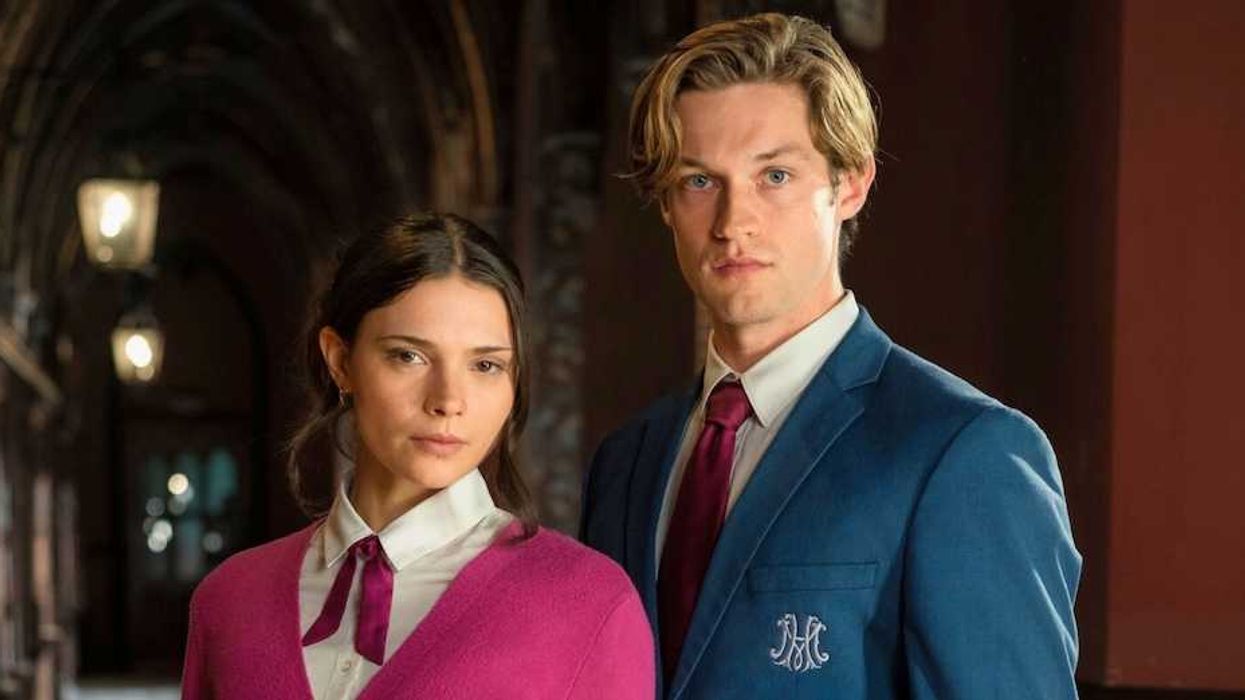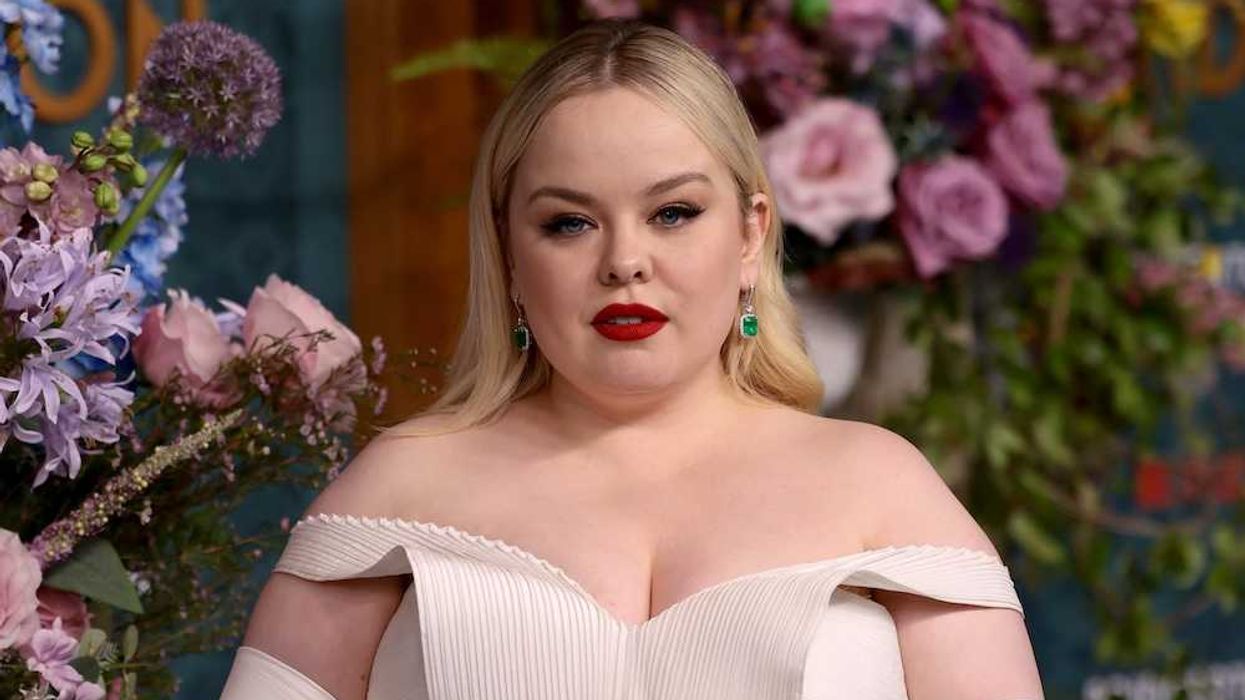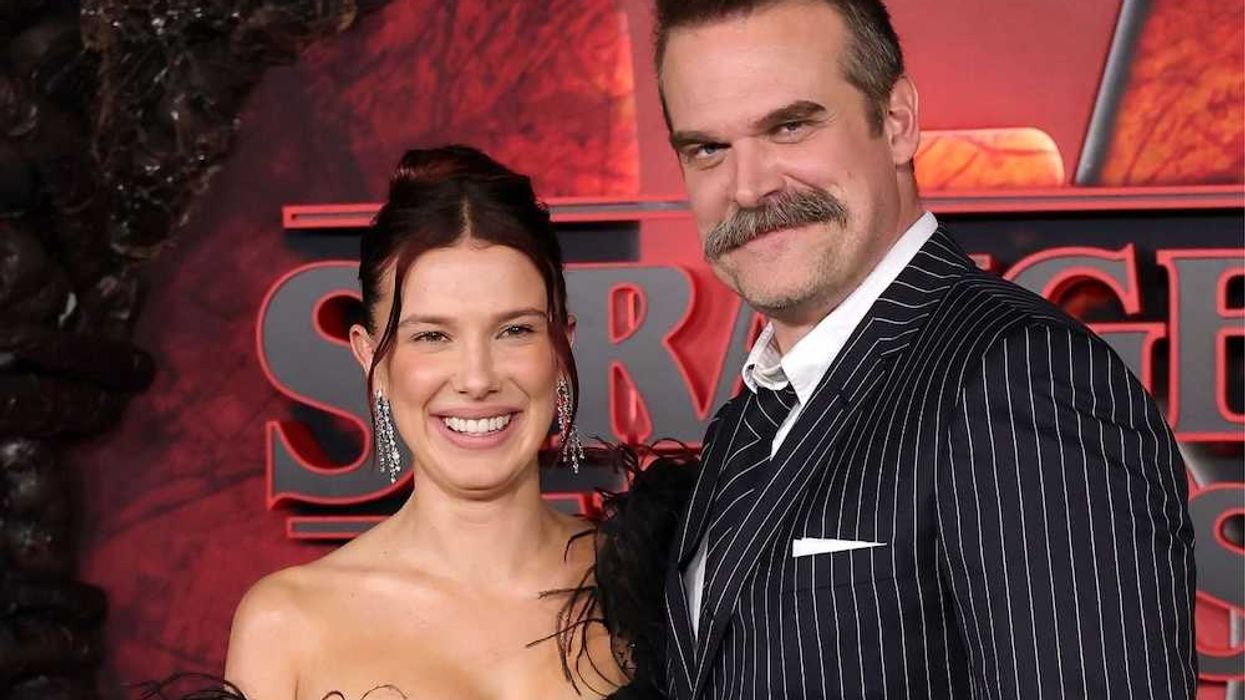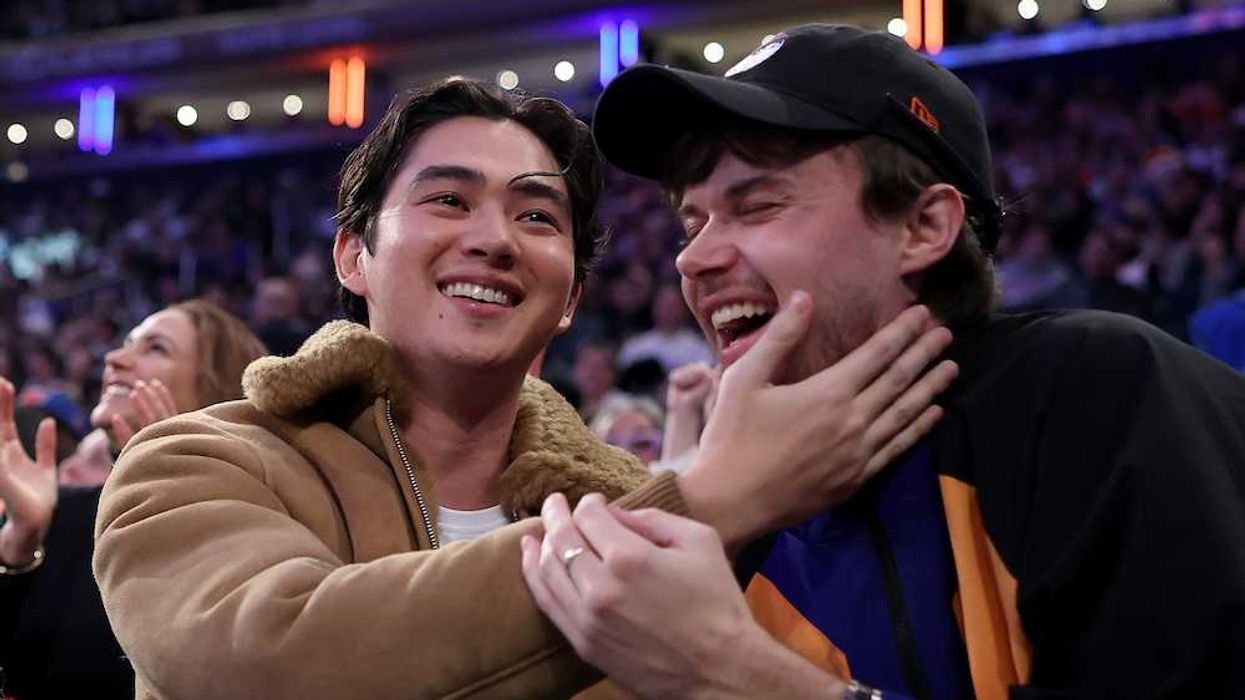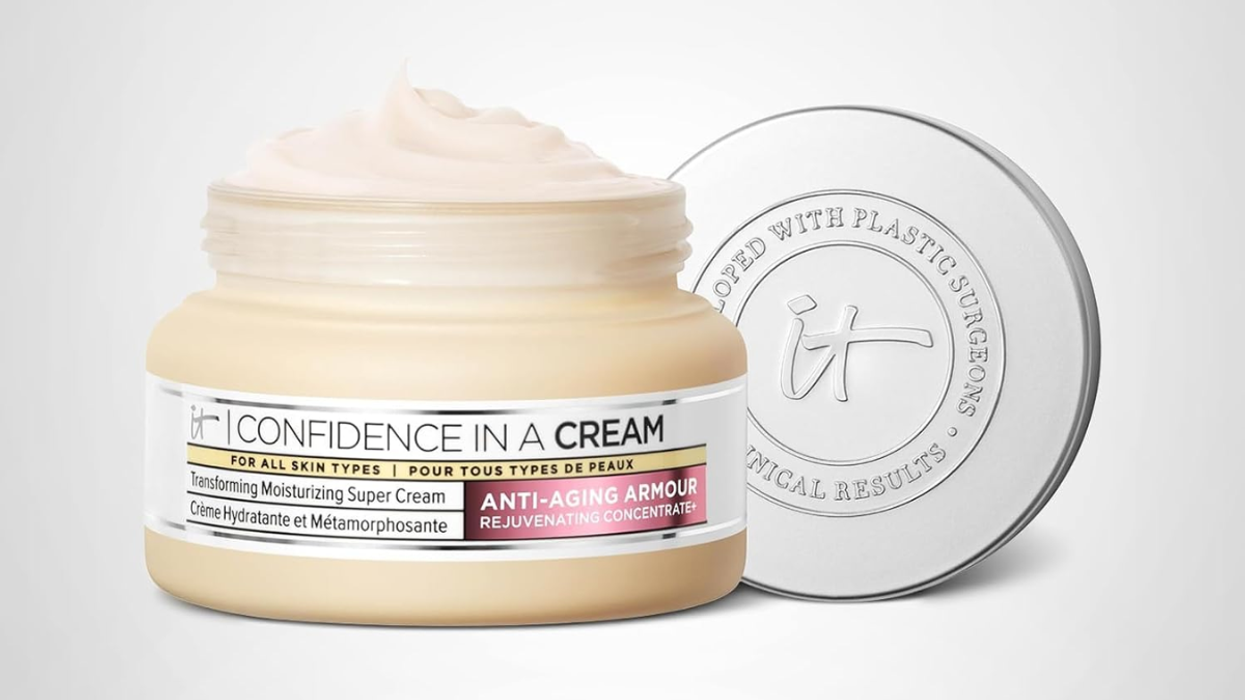"This is my rebellion. This is me carving out a space in a world that was trying to tell me 'no'."
This Tulsa Bookstore Owner Launched A Monthly Book Subscription for Learning Allyship
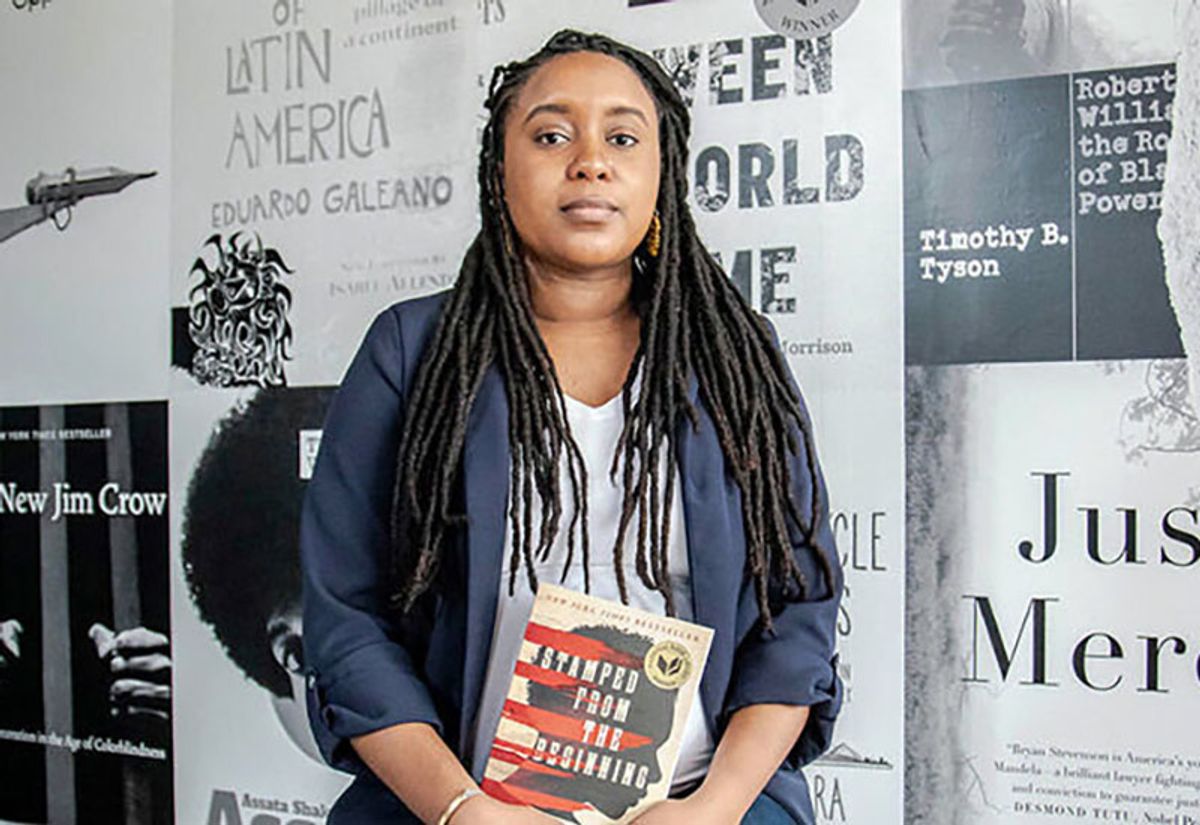
This Tulsa Bookstore Owner Launched A Monthly Book Subscription for Learning Allyship
The world is frenzied, and for once, it feels like we are truly moving in the right direction. Sure, we're questioning literally everything, we're learning, we're listening, we're reading everything, and we're uncomfortable -- this is the type of frenzy that leads to real change. We are hopeful, optimistic, and committed to doing the work. Allyship is a lifelong process, and we are deeply grateful for the BIPOC voices in our community. Today, we have the honor of highlighting a new member of our extended fam: Onikah Asamoa-Caesar, founder of Tulsa bookstore + coffee shop Fulton Street.
Anjelika Temple here, Co-founder and Chief Creative Officer of Brit + Co. The moment I learned about Onikah's journey and mission, I felt inspired and moved. I know you will too. The mission of her bookstore is all about increasing diverse representation, promoting intergenerational literacy, and creating a gathering place for people of color to see themselves and their stories reflected on bookshelves and pages. Recently she launched the Ally Box, a 3-month limited book subscription for allies. Each box comes with two books, curated resources, and suggestions for ways to take action. You can pre-order right here -- the first box ships July 1st.
Now without further ado, read this week's edition of Creative Crushin' to learn more about Onikah Asamoa-Caesar in her own words.
Anjelika Temple: First, ground us in what grounds you. Tell us about your foundations.
Onikah Asamoa-Caesar: The summer before my junior year of high school, I moved from Southern California to Hazlehurst, Mississippi, and it turned my world upside down. Coming from Southern California, living in Hazlehurst felt like living in a history book. Hazlehurst was and is de facto segregated. The racism is blatant. It is confederate flags and segregated schools and in Hazlehurst, there are only two high schools – you can't unsee it.
When I graduated, I got back to California as fast as I could, but something interesting happened. The summer before my freshman year of college, I was walking down the street with a group of other incoming freshmen and a car full of white boys drove by. One of them leaned out of the back window and I heard everything that I had been trying to run from in one word. He called us the n-word. I had come all the way back to California only to be called this before I had been back long enough to lose the southern drawl I had acquired in my two years away. Then school started and, not too long after, someone hung nooses across my college campus.
Those events turned my world upside down in a different way. I was determined to find the roots of it all. Studying history and reading every book I could get my hands on gave me the language to understand and talk about my experience as a Black woman in America.
AT: What was your career path like before you took the leap and opened your own bookshop?
OAC: I started my career in child welfare. As a former ward of the court, it was work that was and is still near and dear to my heart. In 2013, I decided to join Teach for America and moved to Tulsa where I taught first grade. I left education and worked in policy for a bit, but returned to the classroom because I believe in the transformative power of education. I have known for a long time that I wanted to open a bookstore. I didn't quite know when or how, but it is a dream I have had for a long time. In Tulsa, I found a place where I could make that dream happen, and after some blood, sweat, tears, and plenty of late nights later – here we are.
AT: What gave you the confidence to go out on your own and open Fulton Street Books & Coffee? Tell us about the inspiration, any kind of spark moment.
OAC: Fulton Street is necessary. Angela Davis said "I am no longer accepting the things I cannot change. I am changing the things I cannot accept". I could no longer accept the fact that I did not have a space in Tulsa where I could breathe without apology as a Black woman. I could no longer accept the stories of Black folks and POC being relegated to a shelf, or, at most, a display in February. I could no longer accept that Black businesses were being underfunded and our ideas ignored as a barrier to entry. My father has always called me strong willed and hard headed – tell me no and expect a fight. This is my rebellion. This is me carving out a space in a world that was trying to tell me "no".
AT: What gets you out of bed in the morning? What is your north star?
OAC: I now have a daughter, and I want her to be a free Black girl in this world in a way that I have not quite been able to be. I get up every morning thinking about liberation. There are some shirts right now circulating the internet in anticipation of Juneteenth. They say "Free-ish". I get up for the day when those shirts can say "free" and truly reflect the lived experience of Black folks in this country. My north star is the same north star my ancestors followed – the one to freedom.
AT: I know that community-building is a huge part of your mission, and with your newly launched Ally Box, you are extending your community far behind Tulsa. Tell us about the Ally Box.
OAC: The Ally Box was born out of the moment we are in as a nation. There are a lot of people who are starting to understand that what is happening to Black bodies in this country is systemic. I also think people are becoming more aware that their silence will not protect them nor allow them to opt out of this conversation. Too often the burden of educating people about race falls on the shoulders of POC. I tend to decry this because it is one more weight that we have to carry, and at the same time, I realize the stakes are high.
If taking the time to curate this learning experience means one less voice declaring "all lives matter", one less vote for Trump, one less racist comment going unchallenged at the dinner table come November, or one less person walking through this world indifferent to our suffering, then I feel a responsibility at this moment to try. Part of our mission is increasing literacy. The Ally Box is for folks who see what is happening and want to learn more, want to do better and genuinely want to challenge themselves to grow. Reading is necessary, but not sufficient. It is a place to start.
AT: As a woman of color (of Indian origin) and mom to two bi-racial daughters, I'm constantly struggling to find diverse characters and representation in kids' books. What are some of your favorite pieces of kid literature that feature BIPOC characters and topics?
OAC: There are so many! Here are a few of my favorite read-alouds for the little ones right now:
Green Pants
Just a Minute
AT: What advice or tips can you offer for folks working to understand how best to grow as an ally?
OAC: Listen to BIPOC. Seriously. It sounds simple but it seems to be one of the hardest things for would-be allies to do.
You can stay up to date on Onikah Asamoa-Caesar and all things Fulton Street on Instagram @fultonstreet918. Subscribe to the Ally Box here, and support Fulton Street by buying books directly from their online store.




